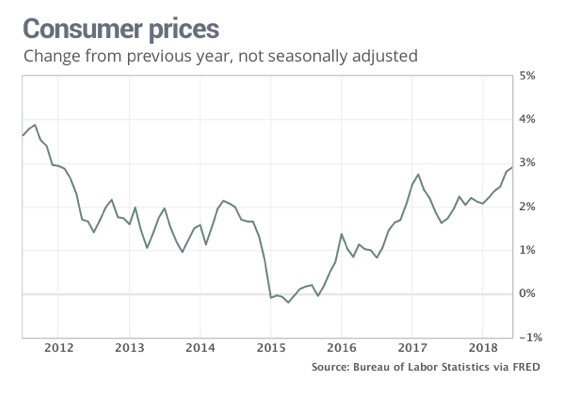Here it comes: The point when tariffs become more than bipartisan headlines on the average American’s favorite media outlet. For the first time since the tariff tit-for-tat began, consumers are witnessing the blowback, with Coca Cola among the first ultra-American products to raise its prices.
For Coca-Cola, the 10-percent tariff in imported aluminum has rendered it more expensive to make the cans.
"Obviously, while [customers] may understand the cost pressures that are out there on freight, on the increases in steel and aluminum and other input costs that affect the bottling system and affects some of our finished products, clearly, these conversations are difficult," CEO James Quincy said on an earnings call last week.
The new price of a can of Coca-Cola will depend on individual stores.
Other products are also getting more expensive, including beer, furniture, boats, motorcycles and campers, according to the Wall Street Journal.
Winnebago Industries CEO Michael Happe told WSJ that the company has had to hit the market “a bit more frequently and a bit more aggressively with some price increases of late”.
Likewise, a beer trade group says that the aluminum tariff will end up costing beer producers nearly $350 million and threatens more than 20,000 industry jobs.
Indeed, consumer prices saw a 2.9-percent increase in the previous 12 months through June.

(Click to enlarge)
Producer costs are also soaring, with U.S. steel prices up 33 percent and aluminum prices up 11 percent since January. The producer-price index rose 3.4 percent in the 12 months through June. Related: Amazon Sees Largest Quarterly Profit In History
But the Senate is hoping to balance this out by eliminating tariffs on “miscellaneous” goods. A bill that passed in the Senate last week to very little fanfare would either slash or get rid of tariffs on some 1,660 items manufactured outside of the U.S., apparently including things like toasters and chemicals. Half of the products on the list, according to Reuters, are produced in China.
Whether it becomes a reality depends on Trump signing it into law once the House and Senate make a few tweaks and send it on. But for now, the White House is remaining tight-lipped.
According to the supporters of the bill—which passed unanimously in both houses—cutting these tariffs makes sense because they were designed to protect industries that no longer exist in the U.S.
But put in another way, that essentially means protecting businesses who have moved production offshore in some (but not all) cases. This is exactly why some domestic businesses aren’t keen on the Senate bill, arguing that it will make it easier for their competitors to import cheap foreign goods and undercut them on price.
In the meantime, Charles Koch—the billionaire industrialist funding a massive political network—is on the warpath. Koch has launched a multi-million-dollar campaign against Trump’s tariffs and the group is using farmers to hit the point home.
"American farmers work hard to put food on our tables but because of new tariffs our farmers livelihoods are at risks," runs a six-figure ad reportedly from Freedom Partners as one of the groups participating in the Koch network campaign, according to CNBC.
By Michael Scott for Safehaven.com
More Top Reads From Safehaven.com
















